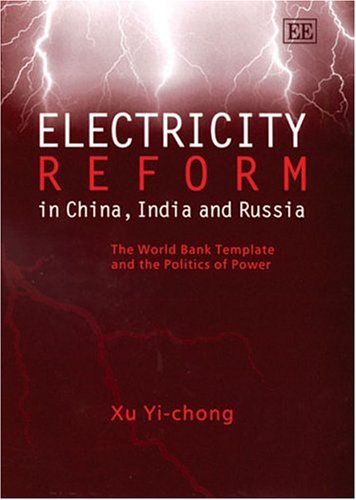Examining the reform and restructuring of the electricity industry in China, India and Russia, this book explores the way that local conditions and institutions shape the commitment, direction and speed of public utility reform in the three countries. It questions the validity of the argument that one model for electricity reforms will work in all countries, on the grounds that the industry is the same everywhere, by examining the World Bank's involvement in economic reforms in developing and transition economies.The author asks how the template developed by the World Bank has affected the three countries and seeks to explain why changes took place, how effectively they have been proceeding, and what the consequences are for these countries. In so doing, Electricity Reform in China, India and Russia challenges both the assumption behind the new reform paradigm - that market competition is the panacea for all the ills of the electricity industry - and the oft-cited belief that a single template can work in different environments.
China, India and Russia have different political and economic systems and at different development stages. Xu Yi-chong uses the experience of the three countries to illustrate the complications created by the use of a single template, a policy encouraged by the World Bank, to direct reform and the need to appreciate the different problems that each had to overcome.
Academics and students who are interested in comparative politics, comparative economics, public policy and particularly the reform of public utilities will find this work of great interest, as will practitioners and those who are involved in restructuring the electricity industry worldwide.
- ISBN10 1843765004
- ISBN13 9781843765004
- Publish Date 27 August 2004
- Publish Status Active
- Publish Country GB
- Imprint Edward Elgar Publishing Ltd
- Format Hardcover
- Pages 384
- Language English
